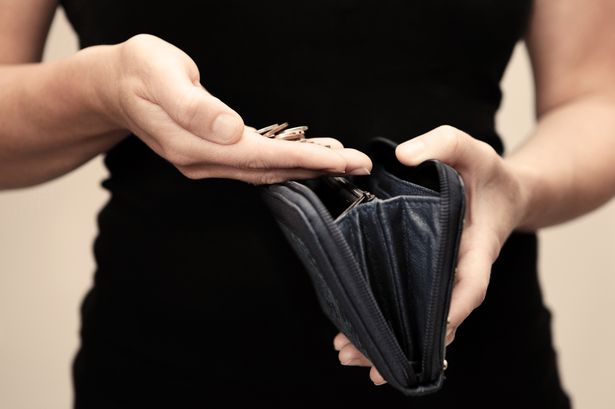January can be a tough month for managing finances at the best of times, but the knock-on effect of the coronavirus pandemic means it may be even more difficult for some people to make their final pay of the year stretch into the new one.
Thousands of workers and people claiming benefits are paid earlier in December than they usually are in other months so the money will need to last until January’s pay day arrives, which could mean waiting up to five or even six weeks.
While many people will b reluctant to think about finances ahead of Christmas, making small changes now could have a huge impact next month – and ease some potential money-worries.
To help you make it through to the end of January, Andy Barr, a personal finance expert and co-founder of online price tracking website alertr.co.uk, shares eight tips to help you make your December pay last until 2022.
1. Don’t be tempted to start digging into December’s pay cheque to fund last-minute Christmas shopping
If you receive your December pay before Christmas, it can be tempting to start digging into it to pay for last-minute festive gifts – leaving you with even less money to get you through January.
If possible, try to finish your gift shopping with the pay you received in November, you could also buy some Christmas dinner ingredients a bit earlier than usual and try freezing them and don’t forget, the supermarket veg war usually mans there are bags of s easonal sides available for less than 20p.
2. Try returning any unwanted gifts
If that reindeer jumper from your relative wasn’t what you wanted over Christmas, try getting a refund if you can. This may need to be done via the person who originally bought the item, so you may need to be prepared for an awkward conversation with the gift-giver.
If a refund is not possible, see if the store will offer a credit note that you can save for later or use on something that will come in handy right now, whether that’s towards your food shopping or something else.
It might feel like you’re crossing a line, but you’re better off with something which is of use to you – and if you approach the conversation in the right way, the gift-giver may be more understanding about the situation than you’d thought.
3. Set a budget
Figure out what money you have left over after paying your regular bills and buying necessities, such as food shopping and fuel for your home and car. From here, you can see what you’re left with and then divide the remainder between the days or weeks you have before your January pay day.
You can even split this budget accordingly, so you have more money in the week or two over the Christmas holidays, and then a little less for the weeks throughout January when you may not be spending as much cash – especially if you’re working from home and saving on the daily commute.
4. Keep your budget separate
Once you’ve set your budget, keep the amount for essentials somewhere physically different, such as in a separate account. It may look like a stark amount left, but it will make you more conscious about what you can spend your money on.
5. Search for those yellow stickers
Many supermarkets and convenience stores discount fresh meat and produce that’s coming up to its sell-by date. Many stores have a set time of day when they like to reduce their products, but a lot of the time it can be potluck. Be sure to have a look through the discounts when you spot them.
6. Batch-cook meals and try out new recipes
If you have a variety of items in your cupboards and aren’t sure what to make, there are many apps and websites where you can input the ingredients and recipe suggestions will be offered.
Having simple, staple ingredients like flour, dried yeast, butter and eggs can offer up a variety of home-baked solutions including bread, pizza dough, scones, shortbread and sponge cakes. Even if you’ve never dabbled, having these ingredients and access to YouTube for recipe ideas could be a quick and cheap win.
7. Shop around for discounts and deals
Before making any purchase, in-store or online, do a quick online search to see if there are any discounts or deals you can apply to your purchases. These might be a discount off the total spend, free delivery or even offers that make your money go further.
Also make sure to use any loyalty schemes with the shops and retailers you use regularly. This could entitle you to additional exclusive discounts and vouchers if you’re on their mail lists.
Keep up to date with the latest Record Money news

There are a number of ways you can stay up to date with the latest money-saving and benefits news from the Daily Record.
You can join the conversation on our Money Saving Scotland Facebook group for money-saving tips, benefits news, consumer help and advice plus the latest shopping deals.
Sign up to our Record Money newsletter to get our best stories sent straight to your inbox every Tuesday and Friday. You can sign up either by entering your email address in the sign up box further up this page or by clicking here.
You can also follow our Twitter account @Recordmoney_ for regular updates here.
8. Recreate ‘going out’ experiences cheaply at home
The new social distancing measures now in effect across Scotland and the rest of the UK mean that for many people, nights out are being put on hold to help the nation stop the spread of the Omicron variant of Covid-19.
But staying in, of course, can save people some money – particularly as you can set a budget for the night before and won’t have to scroll through your banking app the morning after to work out how much you ended up spending.
Whether it’s by creating a nice meal at home instead of at a restaurant, or having a movie night at home complete with popcorn instead of a trip to the cinema, you can save costs and have an entertaining night in.
Get the latest money-saving and benefits news sent straight to your inbox. Sign up to our weekly Money newsletter here.




